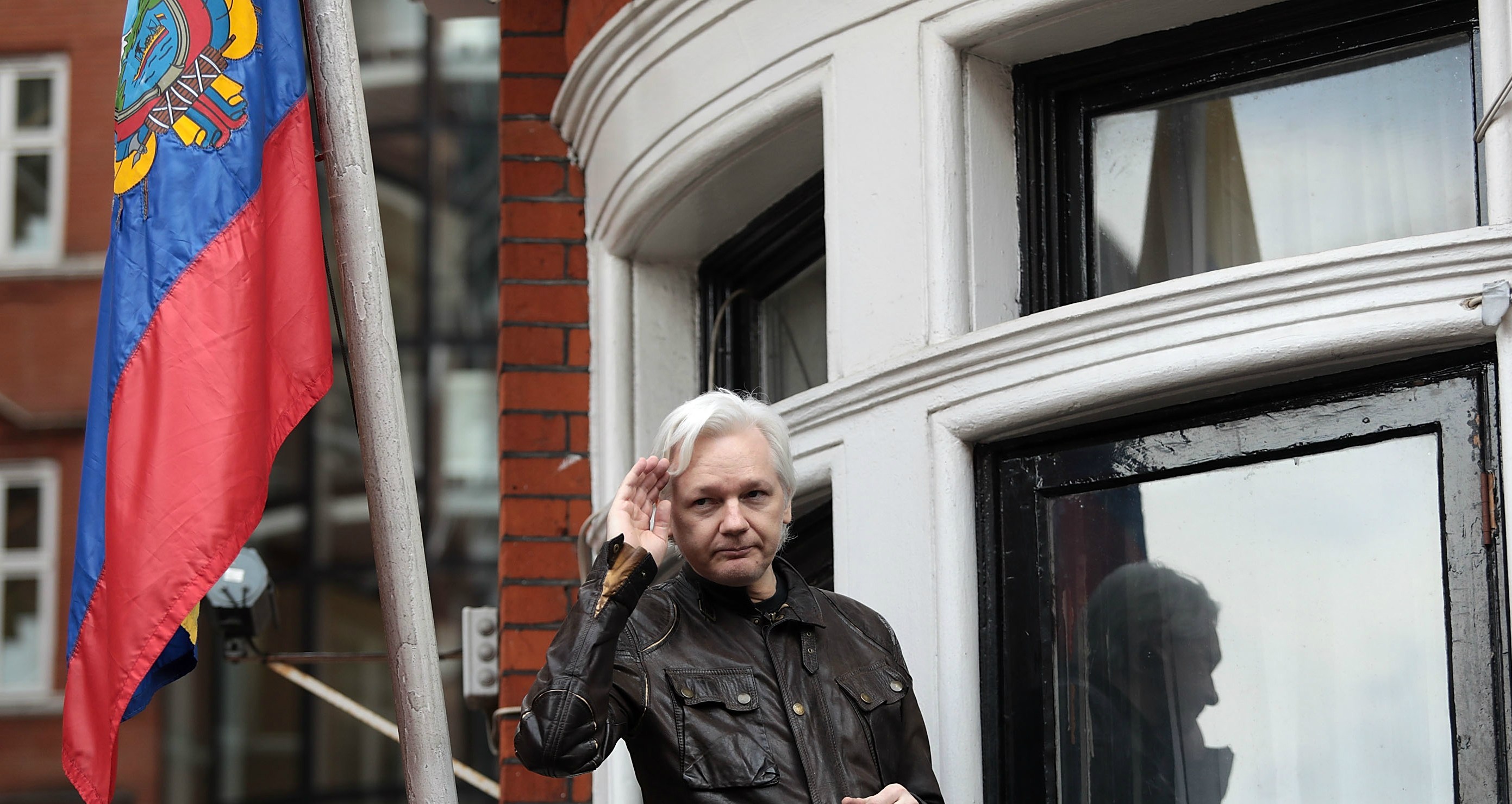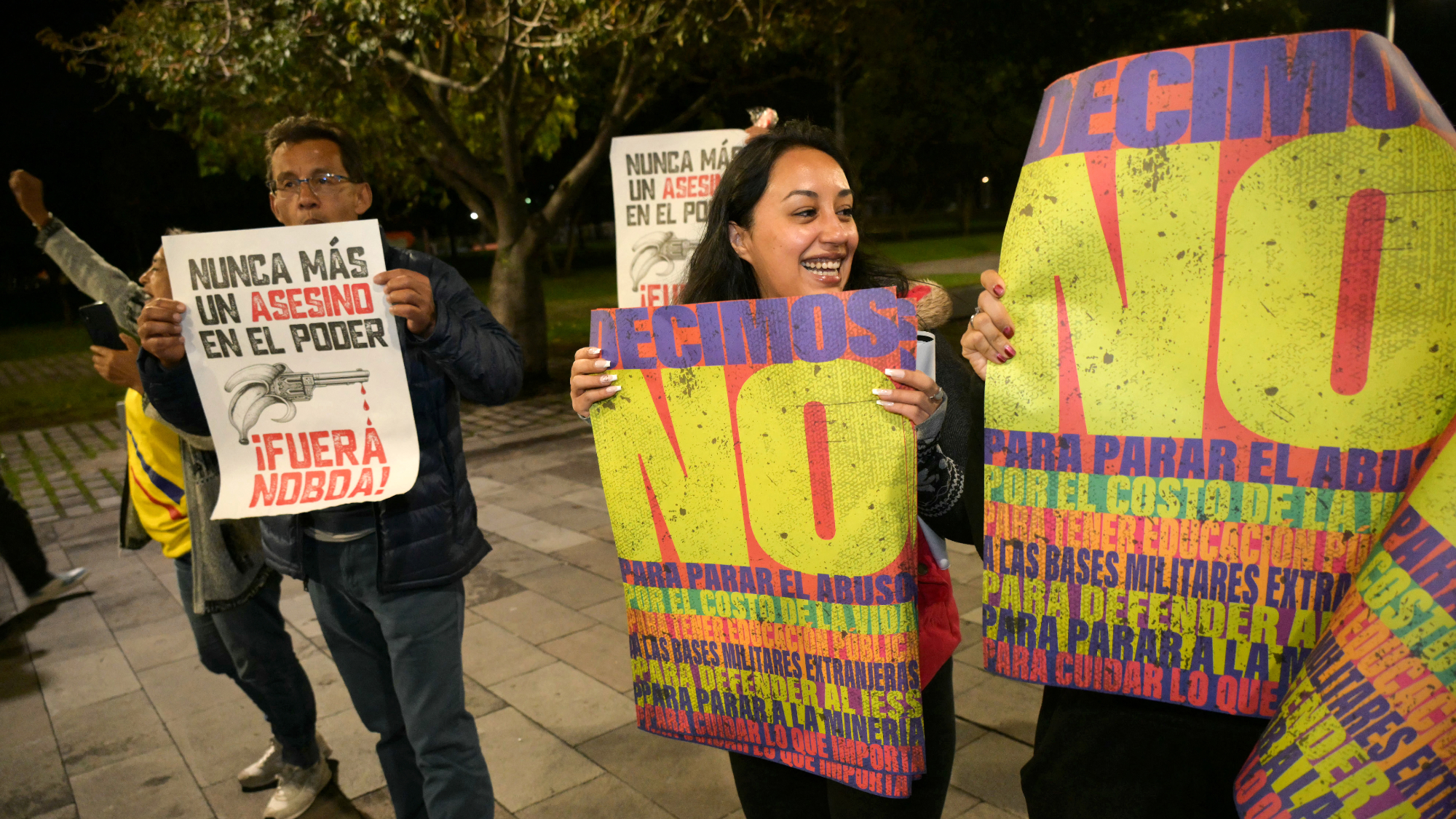Julian Assange: why Sweden has reopened investigation
Lawmakers in Stockholm say rape allegations against the WikiLeaks founder are sufficient to facilitate his extradition for trial in Sweden

A free daily email with the biggest news stories of the day – and the best features from TheWeek.com
You are now subscribed
Your newsletter sign-up was successful
Swedish authorities have confirmed that they have reopened an investigation into the allegations of rape made against WikiLeaks founder Julian Assange.
During a press conference on Monday, deputy director of public prosecutions Eva-Marie Persson announced the decision to reopen the case and claimed that the circumstances “allowed for an extradition to Sweden from Britain”, The Guardian reports.
“After reviewing the preliminary investigation carried out so far, I find that there still exist grounds for Julian Assange to be suspected on probable cause of the charge of rape,” Persson said. “It is my assessment that a new questioning of Assange is required.”
The Week
Escape your echo chamber. Get the facts behind the news, plus analysis from multiple perspectives.

Sign up for The Week's Free Newsletters
From our morning news briefing to a weekly Good News Newsletter, get the best of The Week delivered directly to your inbox.
From our morning news briefing to a weekly Good News Newsletter, get the best of The Week delivered directly to your inbox.
The 47-year-old, who denies the Swedish allegations, is currently in London's Belmarsh Prison serving a 50-week sentence for jumping bail in 2012. After 2,487 days camped at Ecuador's London embassy to avoid extradition, his asylum was withdrawn and he was hauled out by Metropolitan Police officers in April.
Two years ago Swedish prosecutors decided to drop the rape investigation, which relates to an incident in 2010, saying they felt “unable to take the case forward while Assange remained holed up inside the embassy”, reports the BBC.
But during Monday’s conference, Persson added: “Now that he has left Ecuador's embassy, the conditions in the case have changed and... the conditions are in place once again to pursue the case.”
WikiLeaks has said reopening the investigation would give Assange a chance to clear his name.
A free daily email with the biggest news stories of the day – and the best features from TheWeek.com
“Since Julian Assange was arrested on 11 April 2019 there has been considerable political pressure on Sweden to reopen their investigation, but there has always been political pressure surrounding this case,” Kristinn Hrafnsson, WikiLeaks’ editor-in-chief, said in a statement. “Its reopening will give Julian a chance to clear his name.”
Persson confirmed that a European Arrest Warrant would now be issued over the rape allegations - the second concurrent arrest warrant issued for Assange.
The other was issued by the US, where he faces a charge of conspiracy to commit computer intrusion, in relation to his collaboration with army whistleblower Chelsea Manning. The offence carries a maximum penalty of five years in prison.
Assange has voiced fears that his extradition to the US could also lead to further “charges relating to WikiLeaks’s publication of hundreds of thousands of US diplomatic cables”, says The Guardian.
Addressing the Commons on Thursday, Labour's shadow home secretary Diane Abbott questioned the US government's motivation for targeting Assange. She said: “Julian Assange is not being pursued to protect US national security. He is being pursued because he has exposed wrongdoing by US administrations.”
BBC diplomatic correspondent James Landale says the interventions by Abbott and Corbyn mean “the battle over Assange's future will now be as much political as it is legal”.
Leading free speech campaigners have also argued that the indictment that will form the basis of Assange’s extradition is a direct assault on fundamental press freedoms and could have a devastating effect on whistleblowing journalism.
Harvard University law professor Yochai Benkler told The Guardian that Assange’s charge sheet was “vastly over-broad and could have a significant, chilling effect”.
Uncertainty remains over whether courts in the UK will approve the extradition. Like most extradition treaties, that between the US and the UK excludes “political offences”.
“There’s no clear definition of that term, but it is known to cover crimes like treason, espionage and sedition, as well as offences that are directed in some way against the power of the state,” reports Politico.
John Bellinger, the US State Department’s legal adviser under President George W. Bush, told the news site that British courts tend to have a broader view of what constitutes political offences.
But “in this case, it may be - in order to get Assange extradited to the US - just easier to focus on things the US and UK governments can agree on, even if it means leaving some other things off the table”, Bellinger added.
-
 The environmental cost of GLP-1s
The environmental cost of GLP-1sThe explainer Producing the drugs is a dirty process
-
 Greenland’s capital becomes ground zero for the country’s diplomatic straits
Greenland’s capital becomes ground zero for the country’s diplomatic straitsIN THE SPOTLIGHT A flurry of new consular activity in Nuuk shows how important Greenland has become to Europeans’ anxiety about American imperialism
-
 ‘This is something that happens all too often’
‘This is something that happens all too often’Instant Opinion Opinion, comment and editorials of the day
-
 How corrupt is the UK?
How corrupt is the UK?The Explainer Decline in standards ‘risks becoming a defining feature of our political culture’ as Britain falls to lowest ever score on global index
-
 The high street: Britain’s next political battleground?
The high street: Britain’s next political battleground?In the Spotlight Mass closure of shops and influx of organised crime are fuelling voter anger, and offer an opening for Reform UK
-
 Is a Reform-Tory pact becoming more likely?
Is a Reform-Tory pact becoming more likely?Today’s Big Question Nigel Farage’s party is ahead in the polls but still falls well short of a Commons majority, while Conservatives are still losing MPs to Reform
-
 Ecuador rejects push to allow US military bases
Ecuador rejects push to allow US military basesSpeed Read Voters rejected a repeal of a constitutional ban on US and other foreign military bases in the country
-
 Taking the low road: why the SNP is still standing strong
Taking the low road: why the SNP is still standing strongTalking Point Party is on track for a fifth consecutive victory in May’s Holyrood election, despite controversies and plummeting support
-
 What difference will the 'historic' UK-Germany treaty make?
What difference will the 'historic' UK-Germany treaty make?Today's Big Question Europe's two biggest economies sign first treaty since WWII, underscoring 'triangle alliance' with France amid growing Russian threat and US distance
-
 Is the G7 still relevant?
Is the G7 still relevant?Talking Point Donald Trump's early departure cast a shadow over this week's meeting of the world's major democracies
-
 Angela Rayner: Labour's next leader?
Angela Rayner: Labour's next leader?Today's Big Question A leaked memo has sparked speculation that the deputy PM is positioning herself as the left-of-centre alternative to Keir Starmer